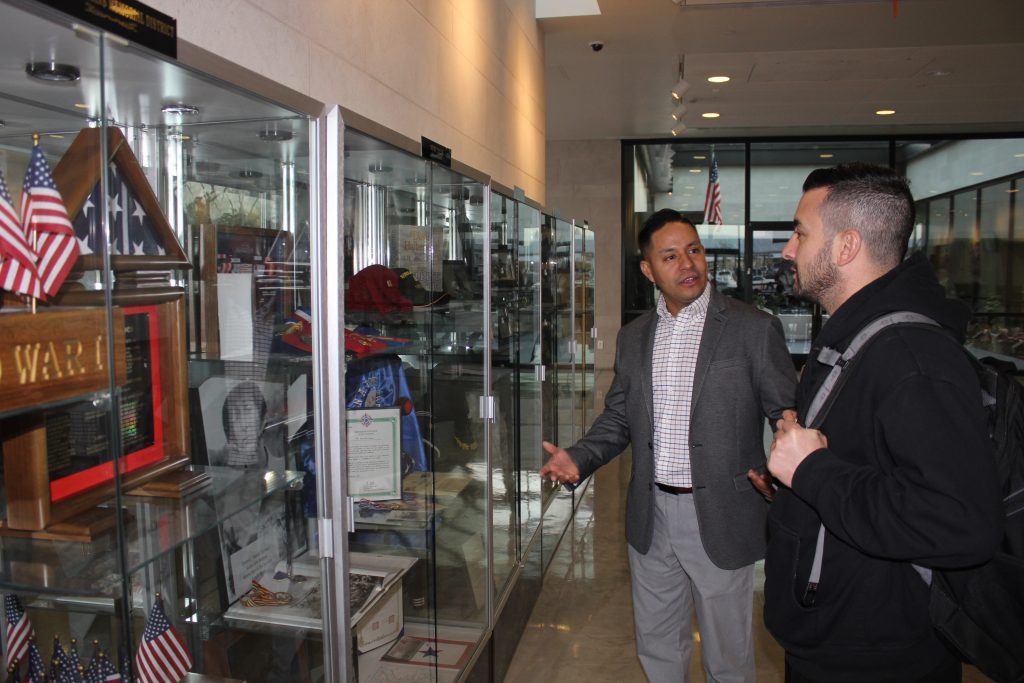
By Diane Skouti | Contributed
Many scholars and researchers agree that the original GI Bill (the Montgomery Bill), created after WWII to provide assistance to the mass of returning service members into civilian society, was partially responsible for creating the “Greatest Generation,” and all their contributions since.
Author Suzanne Mettler writes that the provisions of the GI Bill “communicated to Veterans [at that time] that they were first class citizens’ worthy of the government’s interest and investment.” The Bill’s offerings brought millions of Veterans to college campuses (about 7 million of the 15 million who were eligible), effectively changing the impetus of higher education.
Prior to the war, a college education was, for the most part, a proposition for the elite. By 1947, veteran students had increased overall college enrollments by some 75 percent across the nation.
As President Franklin D. Roosevelt observed, a much needed replenishing of qualified persons to help “discharge the heavy responsibilities of the postwar world” would also help to foster “useful and happy lives [for all citizens] with freedom, justice, and decency.”
Now, thanks to the post-9/11 GI Bill passed in 2009, combat Veterans have emerged once again as growing student populations on college campuses. The improved provisions in the newer version of the GI Bill offer possibilities for wide-ranging options in education, and have opened doors many Veterans may not have previously considered, like perhaps law school.
With today’s GI Bill, education benefits geared toward covering costs for whatever career a Veteran – or their family members – may wish to pursue, law school is proving to be a great second act, after military service.
Senior Deputy District Attorney Sally Moreno knows. She served in the Reserves for more than 10 years, including an activation in support of Desert Storm in 1991.
“The resiliency and determination I learned in the military has served well, both through law school, and as an attorney,” she said.
U.S. Coast Guard Veteran and current law student Jason Trupkin agrees. He says his military service has given him an “invaluable toolset” to succeed in law school. He enrolled at SJCL in Clovis after obtaining an Associate’s degree from Reedley College, and he’s attending without the usual burden of student loan debt that comes with college.
Francisco Rosas is a new admissions counselor at San Joaquin College of Law, who also happens to be a Veteran. He is a prime example of that “worthy investment” began by the original GI Bill so many years ago. Rosas was injured by an improvised explosive device in Iraq and is the recipient of a Purple Heart. He is currently completing a Master of Arts degree in Higher Education Administration and Leadership at Fresno State, and holds a Bachelor of Arts degree in history. His goal now is to help fellow Veterans pick up where their lives left off before service, and make the most of the options available to them. Rosas encourages Veteran service members to aim high and realize that nothing is out of reach. Law school, he says, is not only attainable, but meshes well with the training and skills military service provides.
Rosas’ first project at the law school is a “Veterans to Law School Forum” in conjunction with the Clovis Veterans Memorial District. A panel of Veterans who are current law school students or practicing attorneys will share information on how their military experience contributes to the discipline needed to succeed in law school. In some cases, a Veteran’s military service can assist in fulfilling the education requirements needed for law school admission.
“Military service members are trained to work well in stressful situations,” Rosas added. “This skill set supports them to overcome the challenges of law school, and to persevere until the ‘mission’ is complete.”
The “Veterans to Law School Forum,” which takes place Feb. 16, 7 p.m. at Clovis Veterans Memorial District Auditorium, is open to the public. For more information, contact (559) 326-1455.








